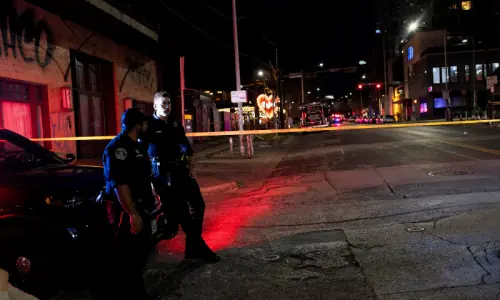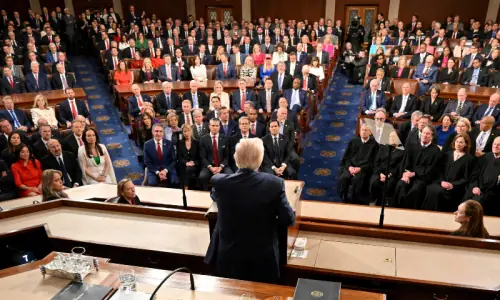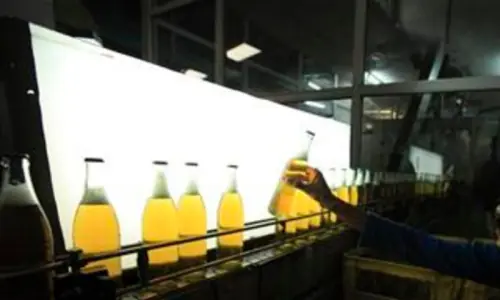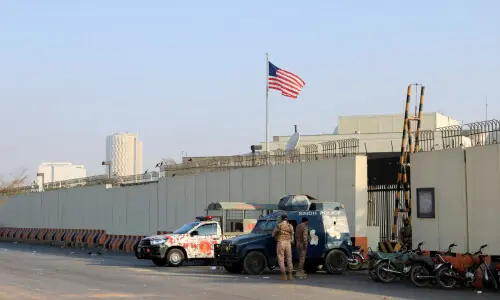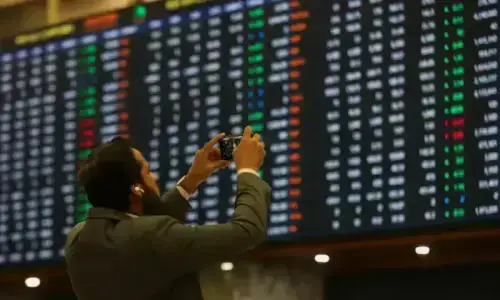BUCHAREST: Romania’s Prime Minister Victor Ponta looked set to win the first round of a presidential election on Sunday, despite fears he could reverse reforms aimed at tackling the rampant corruption that blights one of Europe’s poorest countries.
The vote is seen as a crucial test for the former communist country, at a time when democracy has suffered setbacks in some neighbouring states such as Hungary, and as the Ukraine crisis has shaken relations between the EU and Russia.
Romania’s election campaign has been marred by scandal, with numerous corruption probes including those aimed at allies of the prime minister, and a settling of scores between Ponta and his long-standing rival President Traian Basescu.
Ponta, a social democrat, has been premier for two stormy years of cohabitation with Basescu, and is likely to face 55-year-old liberal Klaus Iohannis, from the German-speaking minority, in a Nov 16 runoff.
“I am confident that 25 years after (the fall of the communist regime) we can complete Romania’s transition so that it becomes a truly democratic and European country,” Ponta said after casting his ballot in Bucharest.
He leads the latest opinion polls on 41 per cent, ahead of Iohannis on 30 per cent and another 12 candidates.
“I voted for a Romania of good work,” said Iohannis, echoing his campaign slogan.
The new president will face a number of pressing issues, including recession and persistent accusations of corruption and bad governance.
The popular centre-right incumbent Basescu, who has accused Ponta of being a former spy, is ineligible to run for a third term.
Romania’s head of state is notably responsible for foreign policy and top-level appointments such as prosecutors in the second poorest country in the European Union after Bulgaria.
“I think these elections can be a maturity test for Romania,” said Corina Rebegea from the Centre for European Policy Analysis in Washington.
The country needs “a president who can imprint a clear sense of vision about how we continue to build a democratic system of governance and rule of law, and proves that 25 years of transition are worth something. “She said 40 percent of the population still believe life under communism was better.
JUSTICE IN DANGER: Despite progress in reforming the justice system which has even seen a former minister jailed for corruption -- many fear a backlash is coming.
Although Ponta, 42, has vowed to keep the justice system independent, his frequent accusations that the prosecution authority known as DNA is biased has stirred trouble.
On what was dubbed “Black Tuesday” in December 2013, Ponta’s government passed a series of new laws granting immunity to elected officials.
The changes were ultimately blocked but the episode served as a wake-up call to Ponta’s critics.
“Fighting corruption is important, but it has to lead to the confiscation of assets of people who are convicted. Nothing is being done against tax evasion,” said 70-year-old retired engineer Ileana Diamantopol.
QUICK REFORMS NEEDED: Experts hope increased surveillance from Brussels will be a safeguard against any regression.
After two paralysing years of cohabitation, Romania needs to carry out reforms quickly, particularly in public administration.
The recession-hit economy is also desperately in need of a boost in a country where the average monthly salary is 380 euros ($480) and more than a fifth of under-25s are unemployed.
“I hope the next president will work to give young people a chance, and to boost small businesses which are the ones carrying the heaviest burden — taxes are too much,” Elena Pascu, a 57-year-old accountant voting in the centre of Bucharest, said.
Foreign investment has dropped in the past five quarters, mainly due to Romania’s chronic incapacity to manage investment programmes or correctly use European funds, said Gabor Hunya of the Vienna Institute for International Economic Studies.
Growth is expected to drop to 2.2 per cent this year from 3.5 per cent in 2013, according to government forecasts.
After three hours of voting, turnout among the 18.3 million strong electorate was 6.5 per cent.
Exit polls are due to be released as soon as polls close at 1900 GMT.
Published in Dawn, November 3rd, 2014













